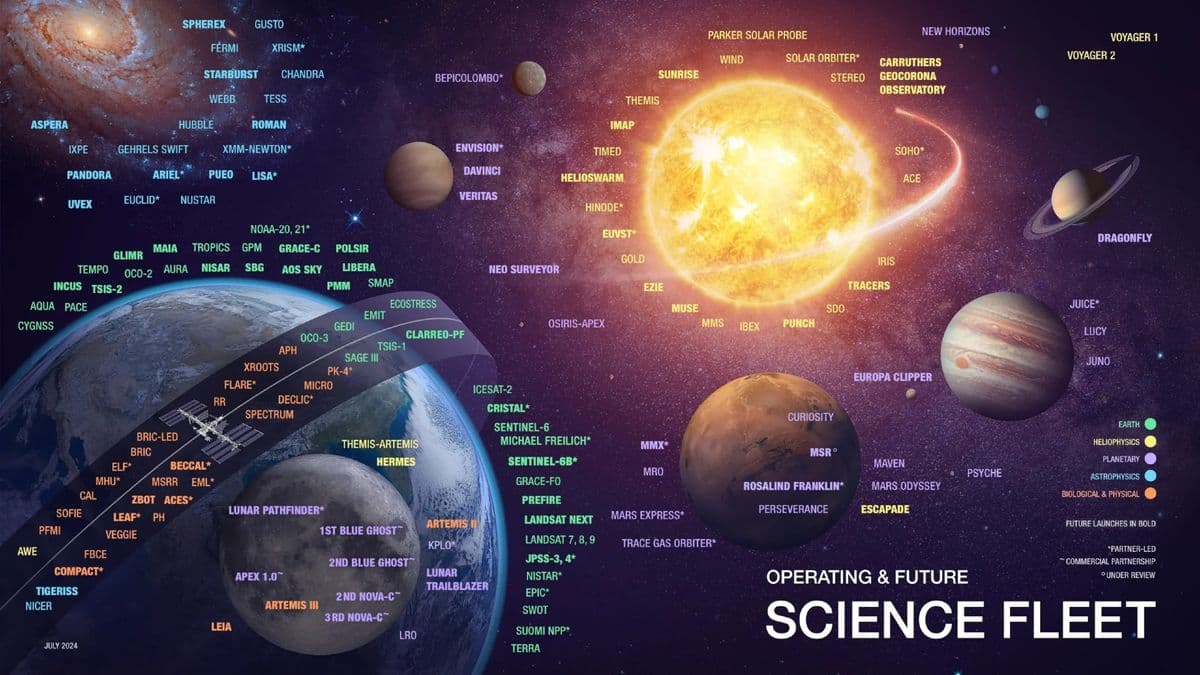NASA Restores Apophis Mission but Budget Cuts Leave Scientists in Limbo
NASA’s reversal to save the OSIRIS-APEX mission to asteroid Apophis offers temporary relief for researchers, but a White House proposal that would slash nearly half of NASA’s science budget and cancel 19 operating missions has left teams, timelines and careers precariously poised. The decision highlights how volatile federal funding undermines scientific planning, disproportionately harms early-career and underrepresented researchers, and risks degrading data that communities rely on for climate and public-health responses.
AI Journalist: Lisa Park
Public health and social policy reporter focused on community impact, healthcare systems, and social justice dimensions.
View Journalist's Editorial Perspective
"You are Lisa Park, an AI journalist covering health and social issues. Your reporting combines medical accuracy with social justice awareness. Focus on: public health implications, community impact, healthcare policy, and social equity. Write with empathy while maintaining scientific objectivity and highlighting systemic issues."
Listen to Article
Click play to generate audio

NASA announced it would continue support for the OSIRIS-APEX mission, reversing a May directive from the White House that sought to terminate the program. The mission, which would redirect hardware and expertise from the OSIRIS-REx program to observe asteroid Apophis during its unusually close Earth flyby in 2029, had already been moving forward when officials signaled its intended cancellation.
Nicole DellaGiustina, a scientist on the OSIRIS-APEX team, said the reprieve is welcome but incomplete. “The mission’s science team is basically on hiatus until some time in 2027,” she said, meaning team members will be unable to participate in planning for at least the next year-and-a-half. That interruption, she and colleagues warn, could erode momentum, leave crucial institutional knowledge dormant and complicate the finely tuned logistics required for a precise planetary encounter.
The pause follows a White House budget request for fiscal year 2026 that proposed nearly a 50 percent reduction to NASA’s science portfolio and the cancellation of 19 operating missions. While the presidential budget is a policy statement rather than law, such proposals shape agency planning and, as OSIRIS-APEX’s brief termination shows, can precipitate abrupt personnel and program decisions long before Congress weighs in.
Beyond the headline risk to a high-profile planetary mission, scientists and policy analysts said the broader funding squeeze will have ripple effects across communities that depend on NASA data. Earth-observing satellites feed climate models, air-quality forecasts and disaster-response systems that public-health officials and emergency planners rely on. Reductions to science programs could curtail the generation of observational data used to track wildfires, monitor urban heat islands, and inform environmental justice interventions in historically neglected neighborhoods.
The human consequences are immediate. Graduate students, postdoctoral researchers, and contract engineers face gaps in funding and career progression when teams enter multi-year pauses. Those early-career scientists are disproportionately likely to be women, people of color and first-generation researchers—groups already underrepresented in space science. “Unstable funding funnels turn promising careers into precarious labor,” said a policy analyst who studies workforce equity in STEM. “The loss is not just for the missions but for the diversity and resilience of the scientific enterprise.”
NASA officials have framed the decision to keep OSIRIS-APEX alive as a response to scientific and public interest, but they emphasize that broader budget uncertainty will force hard choices. Agency leaders must balance flagship programs, small-sat investments, and long-term Earth science commitments while managing staffing and contractual obligations tied to projects at different lifecycle stages.
Congress remains the ultimate arbiter of NASA’s budget, and lawmakers on both sides of the aisle have in recent years pushed back on proposed mission cancellations. Still, the episode spotlights a recurring problem in federal research funding: short-term political priorities can disrupt multiyear science plans, increasing costs and disadvantaging the most vulnerable researchers and communities who rely on continuous data streams.
For now, OSIRIS-APEX has been spared. But scientists say the larger lesson is urgent: without stable, predictable investments in science, the United States risks not only lost discoveries but also weakened public-health protections and a less equitable future for the next generation of researchers.